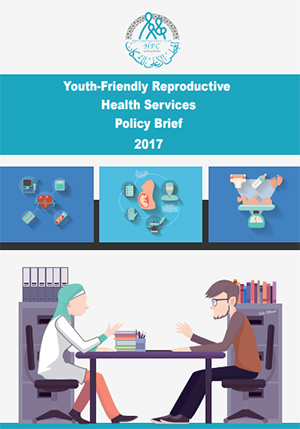

Mindful of the key role that youth play as Jordan transitions to a demographic dividend mainly characterized by a growth of the age group of (15-64) that far outstrips the growth of dependents who are under the age of 15 and over the age of 65, the Higher Population Council (HPC) identified youth issues as priority population and development issues that should be addressed in the coming years.
The demographic dividend requires optimal investment in human resources, especially the youth, by raising their health awareness, providing the needed health services and reinforcing healthy lifestyle habits. Youth make up 20% of the population of Jordan, which calls for a clear and balanced development formula for future planning and the establishment of a youth-friendly sexual and reproductive health services system which is in line with local culture, divine religions, local legislation, and meets the health, social and psychological needs of youth, provided that all stakeholders in the youth sector adopt the system and the global standards for youth-friendly health services are met.
To that end, HPC drafted a policy brief in 2017 entitled “Youth Friendly Reproductive Health Services”. The policy brief analyzed the current situation of the reproductive health services offered to youth in Jordan and identified several challenges that mainly included:
- Cultural and social sensitivities related to the delivery of these services.
- Sexual and reproductive health issues are not tackled well in school curricula and youth tend to seek information through social media, and friends who have previous experiences.
- Interviews with health service providers revealed that the offered services are not based on national standards and that there are currently no applicable standards in the public sector.
- Lack of specialized services for youth including consultation, advice, guidance, and lack of dedicated places for delivering services to youth.
- If youth continue to obtain information from unreliable sources and if the reproductive health services offered to youth remain weak, dangerous behaviors with negative health, social and economic implications on youth and society will start to appear.
The policy brief identified five policy options to address the challenges of providing youth-reproductive health services. The main policy option suggested in the policy brief was developing national standards for youth-friendly reproductive health services that take into account the local culture and religious values.
What is “Youth-Friendly Sexual and Reproductive Health Services in Jordan”: Youth-friendly sexual and reproductive health services are services offered to male and female young people aged (12-30) in a safe and secure environment that guarantees respect of their rights, privacy and confidentiality. These services are attractive to youth, meet their needs, involve them in all stages of service delivery and take into consideration their physical, mental, psychological and social growth. They include the provision of sexual and reproductive health-related information, advice, diagnosis, treatment, care and prevention services including family planning, maternal and child health, prevention of reproductive system inflammations, breast cancer, gender-based violence, prevention and treatment of infertility and impotence, changes accompanying adolescence and HIV. The services are offered through health centers, specialized departments, referrals to service providers, social activities and networking.
What is the goal of the national standards for youth-friendly sexual and reproductive health services?
Youth-friendly sexual and reproductive health services aim to provide efficient and quality reproductive health services to youth and help policy-makers and developers of health plans to
improve the quality and accessibility of health services for youth, protect youth and improve the quality of their lives.
The standards were developed along with a monitoring and evaluation system in order to identify all the procedures that should be followed to implement the standards and measure progress. The standards are comprehensive in the sense that they can be implemented by public and private health centers and civil society organizations in an integrated manner. The standards were developed based on the WHO global standards for quality health-care for adolescents which include: adolescents health literacy, community support, appropriate package of services, providers’ competencies, facility characteristics, equity and non-discrimination, data and quality improvement, and adolescents’ participation. For each standard, a set of measurable input, process and output criteria were identified to measure progress towards meeting the standard.
National Standards for Youth-Friendly Sexual and Reproductive Health Services









